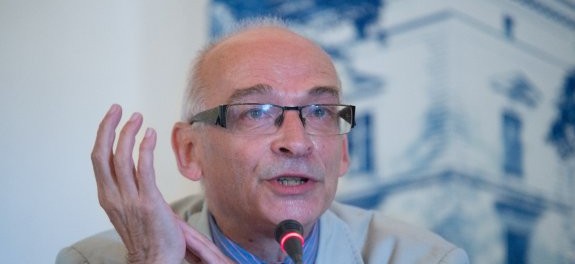Visegrad Summer School
The first lecture of the eleventh edition of the Visegrad Summer School was presented by Jan Lityński, current adviser to the President of Poland and a former dissident and long-time associate and friend to Havel and other Czechoslovak opposition representatives. This lecture proved to be immensely popular and arguably it will be one of the highlights of the two week event. Certainly it was well received by all who witnessed it first hand.
Mr Litiński used this lecture as a means of remembering the renowned former Czech president
Václav Havel. As the audience had a strong familiarity with the life of Mr Havel beforehand, this lecture proved unique as it was delivered from a personal perspective remembering the life of Mr Havel through personal experiences. From the outset, the pattern of the lecture varied between delivering interesting facts and several quotations from Havel that the majority of the audience had never heard of before. The format of the lecture was quite standard, and was delivered in chronological order to the enjoyment of the audience. Some of the principle highlights of the lecture included; the reference to 1979 (May) and the opposition to the Czechoslovakia government by Havel and his associates, holding organisational meetings with his fellow dissidents in the mountains, while another feature of the lecture was the continuing jump between direct quotations and actual events. One of the strongest quotes from the lecture was Havel’s view of the dangers of politics ‘’I hope you never attain your goal of people hanging themselves for political reasons’’. For Havel using politics in such a dangerous manner was unfathomable and Litiński illustrated these sentiments perfectly. Another feature of the lecture was the regular references the Havel as a philosopher and artist. One of the more memorable parts of the lecture recalled Havel’s efforts for a civil and open society outlining his efforts through philosophy and art to bring such ideas to fruition. Certainly this lecture continued apace for its entire duration and the range of stories provided on Havel by Lityński was most impressive.
Lasting just over one hour, the lecture certainly had the desired effect Mr. Lityński had intended for it. Encompassing a series of wonderful tales of the life of Mr. Havel, including the remarkable support for his accession to the Presidency, this lecture was truly unique. Concluding the lecture in a manner befitting the hour that had gone before it, Mr Lityński left the crowd with a simple question. Was Havel ultimately a success or failure? The question remained with the crowd long after the lecture had ended and only reinforced the sense that this lecture was one which had varied from the norms, and in turn provided those lucky enough to sample it with a profound understanding of the legacy and life of Václav Havel













